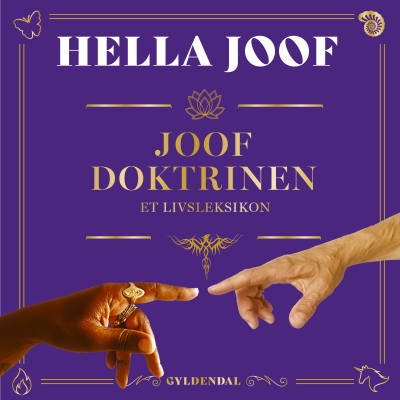Planet Money
Podcast by NPR
Wanna see a trick? Give us any topic and we can tie it back to the economy. At Planet Money, we explore the forces that shape our lives and bring you along for the ride. Don't just understand the economy – understand the world.Wanna go deeper? Subscribe to Planet Money+ and get sponsor-free episodes of Planet Money, The Indicator, and Planet Money Summer School. Plus access to bonus content. It's a new way to support the show you love. Learn more at plus.npr.org/planetmoney
Start 7 days free trial
99,00 kr. / month after trial.Cancel anytime.
All episodes
1264 episodesToday on the show – our crypto president. Just before President Donald Trump began his second administration in January, he and his business partners launched the $TRUMP coin. It's a memecoin that quickly raked in hundreds of millions of dollars. And there's a lot of earning potential still left on the table. Is that even legal? We bring you two stories from our daily show, The Indicator about President Trump and his ties to crypto. First, the Trump coin. We explain what it is, how the real Donald Trump profits from it, and yes, whether this whole crypto scheme is within the law. Then we take a look at Stablecoins: how they work, how they make money, and for whom. The original episodes from The Indicator were produced by Cooper Katz McKim and Corey Bridges. They were engineered by Harry Paul and Robert Rodriguez. They were fact-checked by Sierra Juarez. Kate Concannon edits the show. This episode of Planet Money was produced by James Sneed and edited by Emma Peaslee. Alex Goldmark is Planet Money's executive producer. Find more Planet Money: Facebook [https://n.pr/3h92GwS] / Instagram [https://n.pr/3FqLuws] / TikTok [https://n.pr/3sGZdrq] / Our weekly Newsletter [https://n.pr/3zrFvUB]. Listen free at these links: Apple Podcasts [http://n.pr/PM-digital], Spotify [https://n.pr/3gTkQlR], the NPR app [https://n.pr/3Bkb17W] or anywhere you get podcasts. Help support Planet Money and hear our bonus episodes by subscribing to Planet Money+ in Apple Podcasts [http://n.pr/PM-digital] or at plus.npr.org/planetmoney [https://n.pr/3HlREPz]. Learn more about sponsor message choices: podcastchoices.com/adchoices [https://podcastchoices.com/adchoices] NPR Privacy Policy [https://www.npr.org/about-npr/179878450/privacy-policy]
Over the last few months U.S.-China trade relations have been pretty hard to make sense of – unless you look at what's happening through the lens of game theory. Game theory is all about how decisions are made, based not just on one side's options and payoffs, but on the choices and incentives of others. So, are Donald Trump and Xi Jinping competing in a simple game of chicken? Or is the game more like the prisoner's dilemma? On today's show, we try to decide which of four possibilities might be the best model for this incredibly high-stakes game. And we take a look at who is playing well and who might need to adjust their strategy. For more on the U.S.-China trade war: - The 145% tariff already did its damage [https://www.npr.org/2025/05/16/1251782092/tariff-us-china-pause-trade-war] - What happened to U.S. farmers during the last trade war [https://www.npr.org/2025/05/14/1251284848/american-farmers-trade-war-tariffs-crops-commodity-credit-corporation] - What "Made in China" actually means [https://www.npr.org/2025/05/07/1249592921/tariff-customs-made-in-america-china-france] This show was hosted by Keith Romer and Amanda Aronczyk. It was produced by Sam Yellowhorse Kesler. It was edited by Jess Jiang, fact-checked by Sierra Juarez and engineered by Kwesi Lee with help from Robert Rodriguez and Cena Lofreddo. Additional production help from Sylvie Douglis. Alex Goldmark is Planet Money's executive producer. Find more Planet Money: Facebook [https://n.pr/3h92GwS] / Instagram [https://n.pr/3FqLuws] / TikTok [https://n.pr/3sGZdrq] / Our weekly Newsletter [https://n.pr/3zrFvUB]. Listen free at these links: Apple Podcasts [http://n.pr/PM-digital], Spotify [https://n.pr/3gTkQlR], the NPR app [https://n.pr/3Bkb17W] or anywhere you get podcasts. Help support Planet Money and hear our bonus episodes by subscribing to Planet Money+ in Apple Podcasts [http://n.pr/PM-digital] or at plus.npr.org/planetmoney [https://n.pr/3HlREPz]. Learn more about sponsor message choices: podcastchoices.com/adchoices [https://podcastchoices.com/adchoices] NPR Privacy Policy [https://www.npr.org/about-npr/179878450/privacy-policy]
American universities are where people go to learn and teach. They're also where research and development happens. Over the past eight decades, universities have received billions in federal dollars to help that happen. Those dollars have contributed to innovations like: Drone technology. Inhalable Covid vaccines. Google search code. The Trump administration is cutting or threatening to cut federal funding for research. Federal funding for all kinds of science is at its lowest level in decades. Today on the show: when did the government start funding research at universities? And will massive cuts mean the end of universities as we know them? We hear from the man who first pushed the government to fund university research and we talk to the chancellor of a big research school, Washington University in St. Louis. He opens up his books to show us how his school gets funded and what it would mean if that funding went away. This episode is part of our series Pax Americana, about how the Trump administration and others are challenging a set of post-World War II policies that placed the U.S. at the center of the economic universe. Listen to our episode about the reign of the dollar. [https://www.npr.org/2025/05/09/1250191994/reserve-currency-dollar-renminbi-euro] Find more Planet Money: Facebook [https://n.pr/3h92GwS] / Instagram [https://n.pr/3FqLuws] / TikTok [https://n.pr/3sGZdrq] / Our weekly Newsletter [https://n.pr/3zrFvUB]. Listen free at these links: Apple Podcasts [http://n.pr/PM-digital], Spotify [https://n.pr/3gTkQlR], the NPR app [https://n.pr/3Bkb17W] or anywhere you get podcasts. Help support Planet Money and hear our bonus episodes by subscribing to Planet Money+ in Apple Podcasts [http://n.pr/PM-digital] or at plus.npr.org/planetmoney [https://n.pr/3HlREPz]. Learn more about sponsor message choices: podcastchoices.com/adchoices [https://podcastchoices.com/adchoices] NPR Privacy Policy [https://www.npr.org/about-npr/179878450/privacy-policy]
You might have seen these texts before. The scam starts innocently enough. Maybe it's a "Long time no see" or "Hello" or "How are you." For investigative reporter Zeke Faux it was – "Hi David, I'm Vicky Ho. Don't you remember me?" Many people ignore them. But Zeke responded. He wanted to get scammed. This led him on a journey halfway around the world to find out who is sending him random wrong number texts and why. After you hear this story, you'll never look at these messages the same way again. To hear the full episode check out Search Engine's website [https://www.searchengine.show/whos-behind-these-scammy-text-messages-weve-all-been-getting/]. Search Engine was created by P.J. Vogt and Sruthi Pinnamaneni. This episode was produced by Garrott Graham and Noah John. It was fact-checked by Sean Merchant. Theme, original composition, and mixing by Armin Bazarian. Search Engine's executive producers are Jenna Weiss-Berman and Leah Reis-Dennis. Find more Planet Money: Facebook [https://n.pr/3h92GwS] / Instagram [https://n.pr/3FqLuws] / TikTok [https://n.pr/3sGZdrq] / Our weekly Newsletter. Listen free at these links: Apple Podcasts [http://n.pr/PM-digital], Spotify [https://n.pr/3gTkQlR], the NPR app [https://n.pr/3Bkb17W] or anywhere you get podcasts. Help support Planet Money and hear our bonus episodes by subscribing to Planet Money+ in Apple Podcasts [http://n.pr/PM-digital] or at plus.npr.org/planetmoney [https://n.pr/3HlREPz]. Learn more about sponsor message choices: podcastchoices.com/adchoices [https://podcastchoices.com/adchoices] NPR Privacy Policy [https://www.npr.org/about-npr/179878450/privacy-policy]
Lately we've noticed that something we think about all the time here at Planet Money is having a viral moment: recession indicators! From the more practical (like sales for lipstick going up and men's underwear going down) to the absurd and nonsensical (like babysitter buns coming back into style?) — people are posting to social media every little sign they see that a recession is coming. And we LOVE it. Because between the trade war and the tariffs and the stock market, there has been a lot of economic uncertainty over the last few months and we want to talk about it, too. Today on the show — we dig into the slightly wonkier indicators that economists look at when they're trying to answer the question behind the viral internet trend: Is a recession coming? This episode of Planet Money was produced by James Sneed. It was edited by Marianne McCune, fact-checked by Sarah McClure, and engineered by Cena Loffredo. Alex Goldmark is our executive producer. Find more Planet Money: Facebook [https://n.pr/3h92GwS] / Instagram [https://n.pr/3FqLuws] / TikTok [https://n.pr/3sGZdrq] / Our weekly Newsletter [https://n.pr/3zrFvUB]. Help support Planet Money and hear our bonus episodes by subscribing to Planet Money+ in Apple Podcasts [http://n.pr/PM-digital] or at plus.npr.org/planetmoney [https://n.pr/3HlREPz]. Music: Source Audio - "The Shirt Still Fits," "Chameleon Panther Style," and "Nighthawk." Learn more about sponsor message choices: podcastchoices.com/adchoices [https://podcastchoices.com/adchoices] NPR Privacy Policy [https://www.npr.org/about-npr/179878450/privacy-policy]
Start 7 days free trial
99,00 kr. / month after trial.Cancel anytime.
Exclusive podcasts
Ad free
Non-Podimo podcasts
Audiobooks
20 hours / month



















